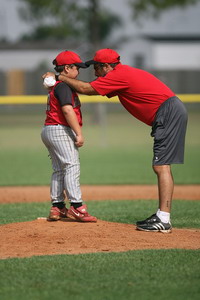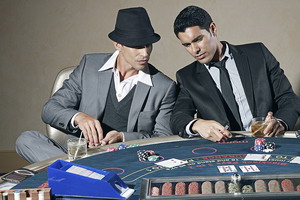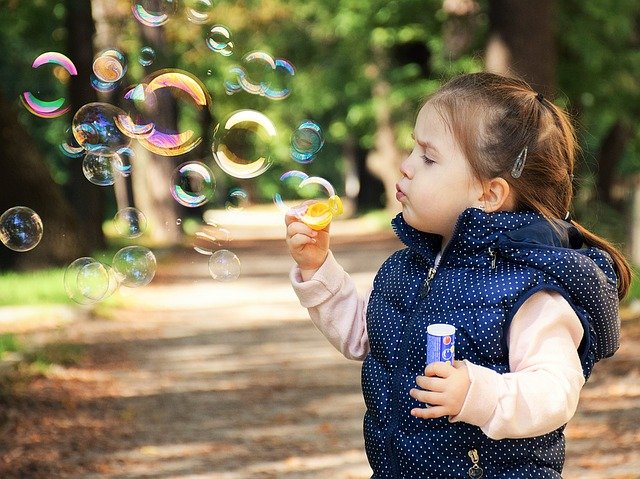 Recently our attention has been channeled toward the subject of increasing the amount of play in our lives. Ellen and I are both confirmed workaholics. We live to work; we love to work. For some strange reason, however, the balance in our life is demanding we also learn how to play. I have never considered myself deficient in play because for me much of what I do is engaged from a playful curious state of mind. This makes the experience of my doing feel light and flowing like play. Work to me involves a strong focus on a particular outcome with a specific set of actions and steps in order to reach the goal. Work feels like work precisely because it stifles freedom and curiosity and the ability to try new things. Work feels fear-driven to me. The obsessive demand of work obstructs self-exploration and expression and puts the desired goal above all else. That is not how I engage things I do.
Recently our attention has been channeled toward the subject of increasing the amount of play in our lives. Ellen and I are both confirmed workaholics. We live to work; we love to work. For some strange reason, however, the balance in our life is demanding we also learn how to play. I have never considered myself deficient in play because for me much of what I do is engaged from a playful curious state of mind. This makes the experience of my doing feel light and flowing like play. Work to me involves a strong focus on a particular outcome with a specific set of actions and steps in order to reach the goal. Work feels like work precisely because it stifles freedom and curiosity and the ability to try new things. Work feels fear-driven to me. The obsessive demand of work obstructs self-exploration and expression and puts the desired goal above all else. That is not how I engage things I do.
 But, apparently, my playful approach to my life is not meeting some level of social participation. My inner coach is saying that there is a whole field of play that is about playing with others. My grammar school report card did not say “does not play well with others”, no it said “does not play much with others at all.” Ellen and I work together on all kinds of stuff. But play? What’s that?
But, apparently, my playful approach to my life is not meeting some level of social participation. My inner coach is saying that there is a whole field of play that is about playing with others. My grammar school report card did not say “does not play well with others”, no it said “does not play much with others at all.” Ellen and I work together on all kinds of stuff. But play? What’s that?
 I think that my lack of a relationship to playing with others goes back to my experiences as a child with the world of competition. I was never able to make that world work for me. Scholastically I was always at the top of the class while athletically I was at the bottom – typical for a nerd (except I didn’t wear glasses). Both positions leave you as an outcast. I learned to hate competition as it was just a way to generate separation and loneliness. It was not my nature to be average and fit in. Possibly the normal forms of play do work for normal kids. Most kids love the opportunity to try and be the winner in a game knowing that they will generally lose. That gives them a common experience with most other kids which generates connection. When I research play and games, almost every form of play and games center on different forms of competition, at least in this culture. This obsession with winning, with being first, number one, or most important runs our society. Everybody wants to be the winner.
I think that my lack of a relationship to playing with others goes back to my experiences as a child with the world of competition. I was never able to make that world work for me. Scholastically I was always at the top of the class while athletically I was at the bottom – typical for a nerd (except I didn’t wear glasses). Both positions leave you as an outcast. I learned to hate competition as it was just a way to generate separation and loneliness. It was not my nature to be average and fit in. Possibly the normal forms of play do work for normal kids. Most kids love the opportunity to try and be the winner in a game knowing that they will generally lose. That gives them a common experience with most other kids which generates connection. When I research play and games, almost every form of play and games center on different forms of competition, at least in this culture. This obsession with winning, with being first, number one, or most important runs our society. Everybody wants to be the winner.
 When I really push on the why behind this, the general answer is that when you are the most important, first, number one, then you get to have your way. Somehow being at the top of the heap gives you the power to demand and make others do and be the way you want. You become the king or queen and the world is your servant. When you say it out loud it sounds pretty attractive. You can make the world be the way you want. Clearly, your image of how things should work is much better than how things actually are. You could make the world into a paradise if you had all the power. Everything would finally feel and be right. These are the dreams of idealists and social reformers throughout history. These are the promises of politicians and preachers everywhere. Yet somehow no matter how much power they get, things just don’t work out.
When I really push on the why behind this, the general answer is that when you are the most important, first, number one, then you get to have your way. Somehow being at the top of the heap gives you the power to demand and make others do and be the way you want. You become the king or queen and the world is your servant. When you say it out loud it sounds pretty attractive. You can make the world be the way you want. Clearly, your image of how things should work is much better than how things actually are. You could make the world into a paradise if you had all the power. Everything would finally feel and be right. These are the dreams of idealists and social reformers throughout history. These are the promises of politicians and preachers everywhere. Yet somehow no matter how much power they get, things just don’t work out.
 What is the fatal flaw in this otherwise beautiful picture? Competition. Each person has their own vision of paradise and it does not match your vision. Even when you get a mass of people to believe in your vision, it still does not work. Too many people compete to be the one person in charge of manifesting and administering the vision while it is being imposed on the faithful and the unwilling alike. Each person’s interpretation of the vision is different, so natural compliance fails. Instead, force has to be used to enforce the ideal vision. Once that happens, the ideal vision has simply become another nightmare. While this seems like a long road from the joys of friendly competitive play, this nightmarish road is a well-traveled freeway to our modern world.
What is the fatal flaw in this otherwise beautiful picture? Competition. Each person has their own vision of paradise and it does not match your vision. Even when you get a mass of people to believe in your vision, it still does not work. Too many people compete to be the one person in charge of manifesting and administering the vision while it is being imposed on the faithful and the unwilling alike. Each person’s interpretation of the vision is different, so natural compliance fails. Instead, force has to be used to enforce the ideal vision. Once that happens, the ideal vision has simply become another nightmare. While this seems like a long road from the joys of friendly competitive play, this nightmarish road is a well-traveled freeway to our modern world.
 We all share a need to be successful in life. If we don’t have that need, we die. If we are not successful at getting our survival needs met, we die. So the drive for success is essential. In the natural world there are three ways of getting our needs met DIY (do it yourself), compete for resources, and cooperate to meet needs. In play, there are these same three modes – self-play, competitive play, and cooperative play. All three types strive to generate the feeling of being successful. As we accumulate success skills and experiences, these flow together to become our world of familiarity or comfort zone. We feel comfortable when the success skills we posses match the world we encounter. We don’t like it when life tosses things at us that we don’t know how to deal with. The point is that the drive for success is inherent in all of us. It is a baseline relationship to reality we all share. It is also a basic motivation for all three types of play. Competitive play is the dominant form of play in this culture because it also has the additional excitement motivation offered by the illusion of power derived from becoming a winner. An easy feeling comparison is self play and cooperative play offer a feeling similar to loving someone while competitive play feels more like falling in love – which is a much stronger more intense feeling.
We all share a need to be successful in life. If we don’t have that need, we die. If we are not successful at getting our survival needs met, we die. So the drive for success is essential. In the natural world there are three ways of getting our needs met DIY (do it yourself), compete for resources, and cooperate to meet needs. In play, there are these same three modes – self-play, competitive play, and cooperative play. All three types strive to generate the feeling of being successful. As we accumulate success skills and experiences, these flow together to become our world of familiarity or comfort zone. We feel comfortable when the success skills we posses match the world we encounter. We don’t like it when life tosses things at us that we don’t know how to deal with. The point is that the drive for success is inherent in all of us. It is a baseline relationship to reality we all share. It is also a basic motivation for all three types of play. Competitive play is the dominant form of play in this culture because it also has the additional excitement motivation offered by the illusion of power derived from becoming a winner. An easy feeling comparison is self play and cooperative play offer a feeling similar to loving someone while competitive play feels more like falling in love – which is a much stronger more intense feeling.
 The pursuit of the win works just fine amongst a group of equals all striving to achieve a similar set of skills. You get together to challenge each other and teach each other the skills you desire. It is understood that the win is just a momentary sign that you have excelled at the desired skills, then it’s on to the next skill set. Boundaries are respected and there is no push to make others be your way. A nice game of poker is a good example. Your win is the pot, not the control of other people. Cooperation is a part of a competition, as rules to the game have to be agreed upon. This is true even in competitions like war. If you don’t observe certain agreements, then no one will play with you. This probably won’t matter to you if you are a hunter-gatherer fighting for food to eat. You don’t want others around consuming the available food supply. But in the world of play with others, rules have to be followed.
The pursuit of the win works just fine amongst a group of equals all striving to achieve a similar set of skills. You get together to challenge each other and teach each other the skills you desire. It is understood that the win is just a momentary sign that you have excelled at the desired skills, then it’s on to the next skill set. Boundaries are respected and there is no push to make others be your way. A nice game of poker is a good example. Your win is the pot, not the control of other people. Cooperation is a part of a competition, as rules to the game have to be agreed upon. This is true even in competitions like war. If you don’t observe certain agreements, then no one will play with you. This probably won’t matter to you if you are a hunter-gatherer fighting for food to eat. You don’t want others around consuming the available food supply. But in the world of play with others, rules have to be followed.
 But what happens when you no longer have a desire to chase after the illusion that you can get or make other people be your way? What happens when the price of having to be first gets too high; too many people leave you because you are not respecting them? If you still want to participate with other humanoids, how do you engage in cooperative play? What does that look like? At first glance, that sounds easy enough, but a quick internet search comes up with amazingly few results. No one is even interested in such things. I found a couple of articles and books on cooperative play among children, but for adults – hardly anything. Most information for adults falls into the cooperative skill-sharing activities – like throwing a Frisbee or baseball to each other. I am thinking that a tandem bicycle or kayak for two might qualify as cooperative play. Bird watching together or just hiking together might just work. I guess if sharing experiences together qualifies then that opens up traveling, eating out, going to plays and movies, all fit the bill. Let’s take things up a notch, something that requires true cooperation – dancing together. Now we are talking. We enter the realm of participatory skills as a type of play. Engaging in imaginative interactive play, like being different characters in a community play or other production would be a serious example of cooperative play. Rarely do folks take stardom in a community play seriously. The key here is skill development where success is measured and felt internally.
But what happens when you no longer have a desire to chase after the illusion that you can get or make other people be your way? What happens when the price of having to be first gets too high; too many people leave you because you are not respecting them? If you still want to participate with other humanoids, how do you engage in cooperative play? What does that look like? At first glance, that sounds easy enough, but a quick internet search comes up with amazingly few results. No one is even interested in such things. I found a couple of articles and books on cooperative play among children, but for adults – hardly anything. Most information for adults falls into the cooperative skill-sharing activities – like throwing a Frisbee or baseball to each other. I am thinking that a tandem bicycle or kayak for two might qualify as cooperative play. Bird watching together or just hiking together might just work. I guess if sharing experiences together qualifies then that opens up traveling, eating out, going to plays and movies, all fit the bill. Let’s take things up a notch, something that requires true cooperation – dancing together. Now we are talking. We enter the realm of participatory skills as a type of play. Engaging in imaginative interactive play, like being different characters in a community play or other production would be a serious example of cooperative play. Rarely do folks take stardom in a community play seriously. The key here is skill development where success is measured and felt internally.
 Now we get down to the core cooperative play available to us – relationships. Most of the time we take our relationships way too seriously. Why? Because we believe (or feel entitled) that our partner should be the way we want them to be. We want to believe that our way is not only the best way but the right way. Unfortunately, this is all bunk. Our way and what we feel is right is only a reflection of what we have learned works for us to get us to our goals and meet our needs (largely emotional needs). Our partner’s history and needs are different, so their way is what they need, not ours. Their lessons in life are different from ours. So to make a relationship that is playful and enjoyable, we must respect our differences and enjoy what we can share with each other. Our close relationships can be full of play and pleasure if we are willing and able to just enjoy who our partner is and share who we are.
Now we get down to the core cooperative play available to us – relationships. Most of the time we take our relationships way too seriously. Why? Because we believe (or feel entitled) that our partner should be the way we want them to be. We want to believe that our way is not only the best way but the right way. Unfortunately, this is all bunk. Our way and what we feel is right is only a reflection of what we have learned works for us to get us to our goals and meet our needs (largely emotional needs). Our partner’s history and needs are different, so their way is what they need, not ours. Their lessons in life are different from ours. So to make a relationship that is playful and enjoyable, we must respect our differences and enjoy what we can share with each other. Our close relationships can be full of play and pleasure if we are willing and able to just enjoy who our partner is and share who we are.
Take care,
David
